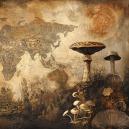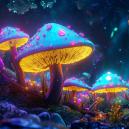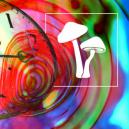The Life And Work Of Terence Mckenna
Published :
February 1st, 2023
Categories :
Research

Terence McKenna was one of the most famous psychonauts of the modern age. Fusing together ancient and modern knowledge from all around the world, he pushed the boundaries of thought, and used psychedelics to form theories about the nature of existence itself. Find out all about the legend that is Terence McKenna.
In all fields, there are those who push boundaries, spread the word, and thus attain legendary status. In the field of modern psychedelics, Terence McKenna is among the most famous—or infamous—thinkers.
Thought of by some as a genius, and by others as a raving madman, here we look into the life and work of Terence McKenna, and give a short overview of someone who undeniably pushed the boundaries of the psychedelic experience, and our knowledge surrounding it.
WHO WAS TERENCE MCKENNA?

Terence McKenna was born in Colorado in 1946. Here he developed an intense love of nature and interest in psychology, which would later come together to form the bedrock for his lifelong pursuits. At the age of 14, he read an essay titled "Seeking the Magic Mushroom", which triggered an interest in psilocybin.
Later, he enrolled at the University of California Berkeley—specifically, at the Tussman Experimental College. Here he began to study topics such as shamanism, which would later take him to Tibet, where he would combine this fascination with that of psychedelic organisms.
After university, he travelled around the world, investigating different cultures and their use of mind-altering substances. Perhaps most significantly, he spent much time in the jungles of South America hunting for magic mushrooms and using DMT in the form of ayahuasca with the indigenous peoples there.
Following this, he wrote several books and became known for his work on psychedelics. McKenna developed several theories, believing psychedelic drugs offered a route to understanding the totality of human existence, and spent the rest of his life trying to inspire others to use psychedelic substances.
WHAT INSPIRED MCKENNA?

Alongside reading about magic mushrooms as a teenager, McKenna also used morning glory seeds early on, which convinced him that there was much more to reality than we assume in our sober, waking consciousness. Furthermore, he claims to have used cannabis every day since he was a teenager.
As well as direct experiences with drugs, other accounts of psychedelic drug use, such as Huxley’s “The Doors of Perception” certainly inspired McKenna's thoughts and theories around these drugs. But it was far more wide-ranging than this. From an early age, he also had a fascination with human consciousness more generally, and cites Carl Jung’s “Psychology and Alchemy” as a serious inspiration.
Combined with a general fascination with nature and existence, these factors all coalesced to create the man Terence McKenna became.
WHAT ARE TERENCE MCKENNA’S THEORIES?
Over a life of regularly using powerful psychedelic drugs to explore the very nature of existence, it should come as no surprise that McKenna came up with some theories. Though some may seem outlandish, they’re certainly interesting, and one or two may even have some real substance to them.
THE STONED APE THEORY
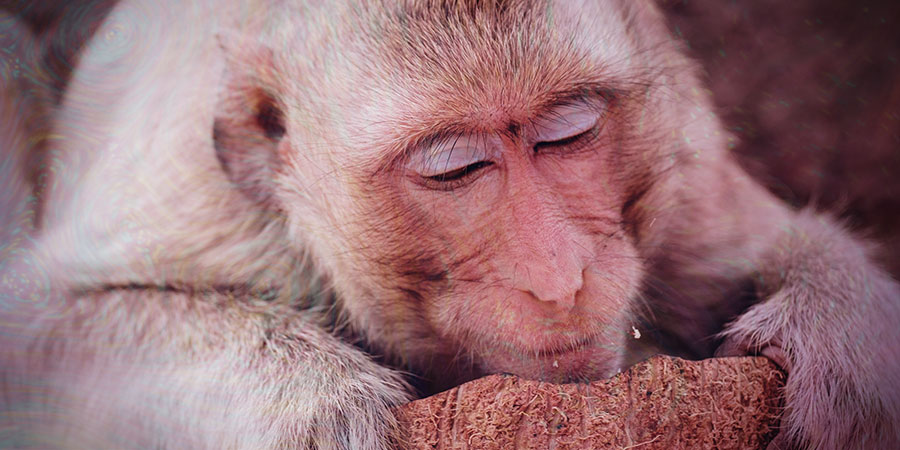
The stoned ape theory could perhaps have benefited from a name that doesn’t so readily associate it with cannabis—as it doesn’t even involve cannabis. Nevertheless, this is perhaps the most compelling of all McKenna’s theories.
In short, it derives from the idea that early humans descended from trees and took to the savannahs of what is now Africa. At this time, it is known that a rapid development in the human mind did indeed take place, and it seems that we began cooperating and thinking as modern humans do. So what did McKenna propose triggered this jump in human evolution?
His theory suggests that as these protohumans began stalking grazing animals on the great plains, they would have inevitably come across species of Psilocybe cubensis growing on the dung of the very animals they followed around.
Given this, he claimed these people would have eaten these mushrooms and experienced their consciousness-altering effects. And it is this, McKenna thought, that caused the speedy evolution in human consciousness.
At the time, and since, the wider scientific community generally rejected this theory. However, recent discoveries suggest that actually, he may have been onto something. For instance, modern studies have suggested that psychedelics do in fact heighten consciousness (Schartner et al., 2017). Combine this with the fact that consciousness changed very quickly at that time—which is odd, as evolution usually happens much more gradually—it suggests that there was some external catalyst at least partially responsible for this rapid shift.
Sadly, neither this theory nor those of its dissenters are provable at present, and so we can only continue to speculate.
TIMEWAVE THEORY, OR NOVELTY THEORY
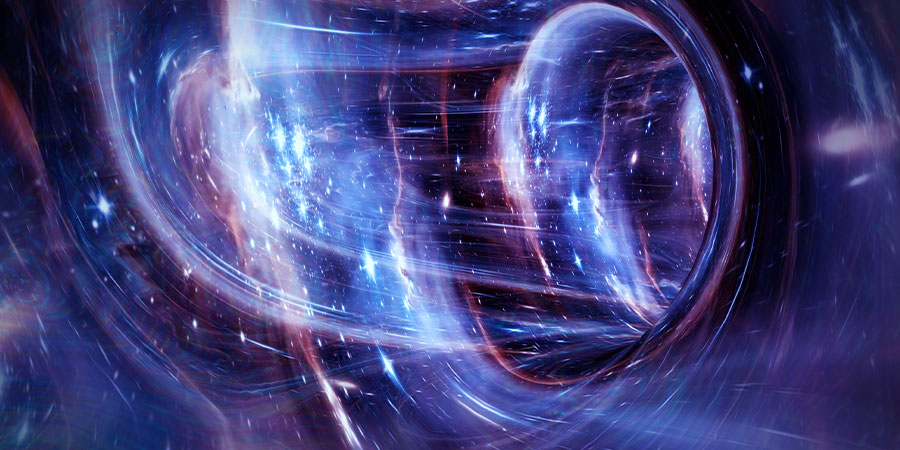
The timewave theory was developed by McKenna and Peter Johann Gustav Meyer, after McKenna studied the I Ching (an ancient method of Chinese divination). In the I Ching, McKenna said he found fractal patterns that could be used to represent the flow of time.
Time, he said, moves in periods of novelty and habit. During the periods of novelty, it becomes more complex, and will eventually reach an infinitely complex singularity, at which point the universe as we know it would end.
Using various graphs and some questionable maths, McKenna identified mid-November 2012 as the world’s end date. When he discovered that the Mayan calendar ended in December 2012, he adopted that end date instead. Alas, we now know these dates passed without any sign of Armageddon.
Though most of this theory has been disproven, there is one particularly interesting idea embedded within it. It goes as follows; rather than the universe beginning with a big bang and being pushed away from a singularity, he proposed that the universe was in fact being pulled toward a final end date—an ultimate singularity that would also be its “true” and final form.
Beyond an interesting way of conceiving the nature of existence, this idea may require a little more development before it’s considered anything more than a novel idea.
PSILOCYBIN PANSPERMIA SPECULATION

This theory proposes that Psilocybe spores arrived on Earth from space. Indeed, he even suggested that rather than arriving, they are a higher form of intelligence that migrated here through space on cosmic winds, with the purpose of forming a symbiotic relationship with human beings.
Interestingly, during his own life, McKenna attempted to fuse Psilocybe DNA with his own, in the hope that if he could become a hybrid on such a deep level, he would attain an incredible depth of knowledge.
He criticised contemporary science for being unable to even consider theories such as this. Though they may have quantitative observations of psychedelics, most scientists lacked any actual psychedelic experience, which—McKenna claimed—made their disbelief of shrooms' extraterrestrial origins irrelevant.
THE IMPACT OF TERENCE MCKENNA
McKenna had a massive impact on the world of psychedelics—both good and bad. More on the bad shortly.
By travelling the world and bringing together thought and knowledge from ancient Tibet and China, preserved knowledge from Central and South America, and modern scientific Western knowledge, he certainly fused information and influence from disparate sources.
By writing many works and never allowing himself to follow anything other than his own ideas, he was undoubtedly a compelling force. Furthermore, whether you agree with his ideas or not, there’s no doubt that they are certainly fascinating—and, at least in the case of the stoned ape theory, may have some weight to them too.
CRITICISM OF MCKENNA
On the other side, some think that Terence McKenna (and Timothy Leary) actually damaged the reputation of psychedelics and held their research back by decades. By proposing potentially outlandish theories, critics suggest that opponents of psychedelics were able to point to these theories as evidence that psychedelic drugs were of little use.
By identifying strongly with counter-culture, it is thought that these men may have taken psychedelics with them to the fringes of society.
IS THE WORK OF TERENCE MCKENNA STILL RELEVANT TODAY?
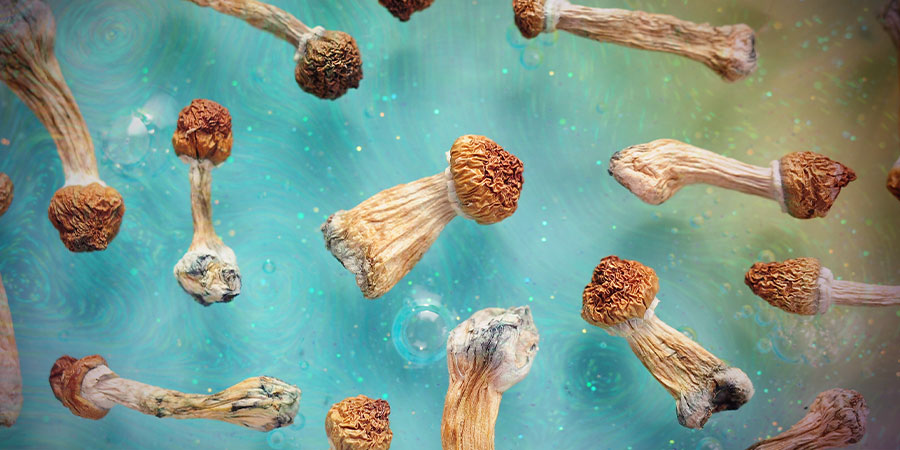
Undoubtedly. In fact, with the current psychedelic “renaissance”, certain ideas are once again gaining traction. However, this must be taken with a pinch of salt. Modern thought around psychedelics is, on the whole, a far cry from that of Terence McKenna.
For better or for worse, the mainstream discussion around psychedelics today rests much more on quantitative scientific analysis, rather than exploration of the subjective experience. Nevertheless, the passion and work of McKenna lives on.



